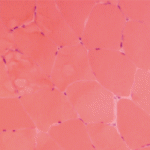
There is no clear association between the degree of inflammation or disease activity and the level of fatigue.
Image Credit: Photographee.eu/shutterstock.com
ROME, Italy—Fatigue, a problem experienced frequently by patients with rheumatic diseases, is best thought of as a survival mechanism and as a single phenomenon, not a condition that comes in a variety of forms, an expert said in a session at EULAR 2015, the annual congress of the European League Against Rheumatism (EULAR).
Gene Regulated
Roald Omdal, MD, professor of medicine at the University of Bergen in Norway, said studies have shown that there is a biological basis for fatigue, that fatigue is gene regulated and that there may be several pathways that bring about fatigue in patients.
The “sickness behavior” model—the condition in which patients with an infection, such as the flu, lose their appetite, want to be left alone, feel fatigue and so on—is a good model to use when thinking about fatigue, Dr. Omdal said. The infection brings about a cytokine response—and the cytokine that is involved with fatigue is interleukin 1 beta (IL-1-beta), he said.
“In my opinion, interleukin 1 beta signaling is the fatigue cytokine,” he said. “There is convincing evidence from animal studies—and also, lately, in humans—that this plays an important role.”1
Thinking of fatigue in this way fits in with the somewhat strange findings that there is no clear association between the degree of inflammation or disease activity and the level of fatigue. That could be because it might not actually be the inflammation that brings on fatigue, but the response to the inflammation that causes it. This would make sense when considering that fatigue is a phenomenon that has been preserved through the evolution process as a defense mechanism of sorts.
“In healthy or normal humans and normal animals, fatigue is supposed to be beneficial for you,” he said. “Why is it so? It’s a complex survival mechanism, strongly conserved during evolution. And it increases the probability that you [will] survive infections, injury and danger,” making it less likely that predators will find you and eat you while the immune system is fighting the infection.
“Most studies find no clear association between the grade of inflammation or disease activity and the grade of fatigue.”
There is a treatment challenge with fatigue, Dr. Omdal said. Traditional drugs don’t help, although biologics and small-molecule drugs, such as Jak inhibitors, have been found to help alleviate fatigue, he said.2,3
Muscle Fatigue
In a talk based mainly on studies of skeletal muscle function discrete from the nervous system, a muscle physiologist said the muscles in patients with rheumatoid arthritis (RA) have something intrinsically problematic going on that is separate from the loss of muscle mass.



